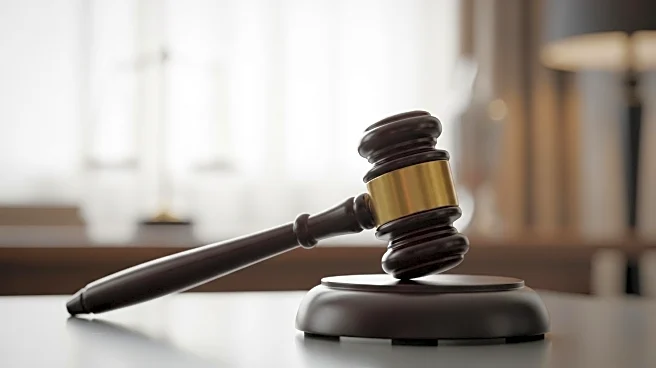What's Happening?
An emergency court hearing regarding President Trump's attempt to fire Federal Reserve Governor Lisa Cook concluded without an immediate ruling. U.S. District Judge Jia Cobb presided over the hearing, which lasted over two hours, focusing on Cook's request to retain her position while her legal challenge proceeds. President Trump announced Cook's firing, citing allegations of mortgage fraud, marking the first instance of a Fed governor being dismissed by a president. The move is seen as an escalation in Trump's ongoing conflict with the Federal Reserve, which he has criticized for not lowering interest rates quickly enough. Judge Cobb has requested additional written arguments by next Tuesday, indicating a potential expedited resolution. The judge expressed skepticism towards arguments from both Cook and Trump, questioning the adequacy of notice given to Cook regarding her dismissal and the due process involved.
Why It's Important?
The case highlights the tension between presidential authority and the independence of the Federal Reserve, a cornerstone of U.S. economic policy. If President Trump succeeds in removing Cook, it could set a precedent for increased political influence over the Fed, potentially affecting its ability to make impartial decisions on monetary policy. This could lead to lower interest rates, as Trump desires, impacting inflation and long-term borrowing costs. The outcome of this legal battle could redefine the boundaries of presidential power over independent agencies, with significant implications for economic governance and stability.
What's Next?
Judge Cobb's decision on whether to issue an emergency order allowing Cook to remain in her position is pending. The case may proceed to the Supreme Court, where the limits of presidential power over the Fed could be further scrutinized. The Fed's upcoming policy meeting on September 16 may also be influenced by the outcome, as policymakers consider interest rate adjustments amidst ongoing political pressure.








